Dr.Surajit Deka
MTech (Gauhati University), PhD (Gauhati University)
Signal Processing, Software Defined Radio (SDR) , IoT and Wireless Communication
dekasurajit123[at]gmail[dot]com
|
|
About The Department of Electronics and Communication Engineering: The Department of Electronics and Communication Engineering was established under Faculty of Technology, Gauhati University during the year 2009-2010, primarily to offer B.Tech and M.Tech programmes. The founding HoD i/c was Dr. Kandarpa Kumar Sarma. Earlier, the M.Tech programme in Electronics and Communication Technology (with AICTE approval) was introduced in the Department of Electronics and Communication Technology (former Department of Electronics Science) during 2008-09. The B.Tech programme was launched in the year 2009 and was initiated from the month of August of that year. The programme was introduced with only two faculty members and two support staff. The Department was established with a view to impart quality education in the field of Electronics and its allied areas and provides a platform of research in upcoming fields. Since its inception, the Department has been providing quality education to the students. The faculties of the Department are young, energetic, dynamic, diligent and equally well-experienced. The primary strength of the Department is in the areas of Soft-Computing, Digital Signal Processing, Communication, Computer Vision, Bio medical Signal Processing and VLSI design. It has a mix of analog and digital equipment for hardware design, microprocessor and microcontroller programming, independent computing facilities to perform simulation based design using Matlab R2010a, Remcom wireless suite, Mathematica, Multisim etc. software of which complete support and related services are available. The Department is having sophisticated laboratories, all of which are equipped with audio-visual aids. The Department is equipped with uninterrupted power supply and internet connectivity. The Department also has a well-stocked library of its own. Moreover, for proper coordination among the faculties, guest teachers and instructors, other staff and the students a healthy environment has been created in the Department. The Department is associated with the organization of a number of workshops, celebrations, popular talks, training programmes etc. In 2012, MTech in Signal Processing and Communication was introduced with AICTE approval. Further, in 2013,MTech in Signal Processing and VLSI Design was introduced with AICTE approval.The Department has received support under MHRD-NEQIP (2014-17) and MHRD- TEQIP III (2017-20). Mr. Jyoti Prakash Medhi, Assistant Professor became HoD i/c during 2014-2017. Prof. Kandarpa Kumar Sarma became the regular HoD from September, 2017.
Vision of The Department :
To Strengthen the existing platform of systematic study of Electronics and related disciplines so as to achive excellence in chosen areas of academic activity and contribute towards improvement of human life in general.
|
a) Name of the Programme : B.Tech. in Electronics and Communication Engineering (AICTE approved.)
b) Duration of the Programme : 8- semesters (4- years)
c) Intake Capacity : 60 ( Sixty ) (AICTE Approved.)
d) Admission process :
Eligibility- As per JEE Main (PRC holders of Assam only) and CEE (Assam) norms.
Admission criteria :
i. As per JEE rank : Maximum 20% seats
ii. CEE rank : Remaining seats after completion of the admission of the JEE qualified candidates.
Lateral entry (to 3rd –Semester / 2nd year):
Admission criteria- Minimum 45% or equivalent in 3-year Polytechnic Diploma/ B.Sc. in Electronics, Electronics and Communication Engineering, Electronics and Electrical Engineering, Electrical Engineering, Electronics and Instrumentation Engineering.
e) Programme Structure :
Download Curriculumn for B.Tech. in Electronics and Communication Engineering
a) Name of the Programmes :
M.Tech. in Signal Processing and Communication (AICTE approved.)
M.Tech. in Signal Processing and VLSI (AICTE approved.)
b) Duration of the Programmes :4- semesters (2- years) for each programme.
c) Intake : 18 (Eighteen) each.
d) Admission process :
The admission for both the M.Tech. Programme is done in following two modes:
(i) Direct entry- For GATE qualified students 50% of the seats are reserved for the M.Tech. programmes. Detailed notification available in www.gauhati.ac.in and https://www.gauhati.ac.in/technology/electronics-and-communication-engineering.
(ii) Entrance Examination- Remaining seats will be from Entrance test to be conducted by Gauhati University. Candidates with valid GATE score and not getting direct admission (as per Sl. no i.) may also apply to appear in the entrance test.
The scope of the entrance examination is the GATE syllabus of ECE.
Elligibility Criteria :
Qualifying degrees for both the M.Tech Programmes (Any one of the following)
* B.E/B.Tech in Electronics and Communication Engineering
*B.E/B.Tech in Electronics
* B.E/B.Tech in Electronics and Electrical Engineering
*B.E/B.Tech in Electrical Engineering
*B.E/B.Tech in Electronics and Instrumentation
*B.E/B.Tech in Electronics and Telecommunication Engineering
*B.E/B.Tech in Power Electronics
*B.E/B.Tech in Instrumentation
*MSc. In Electronics Science
*MSc. In Electronics and Communication Technology
*MSc. In Instrumentation
*MSc. In Instrumentation and Applied Physics
Qualifying Marks: For general category students minimum 50% and for reserved categories 45% marks in the qualifying degree examination is required.
e) Programme Structure :
Download Curriculumn for M.Tech. in Signal Processsing and Communication
Download Curriculumn for M.Tech. in Signal Processsing and VLSI
a) Name of the Programme : PhD in Electronics and Communication Engineering
b) Duration : As per the regulation
c) Intake : As per availability of seats
d) Admission Process :
Entrance Examination- Entry to the PhD programme is through entrance examination as part of GURET. The scope of the entrance examination is the GATE syllabus of ECE. Notifications are online in May-June and December-January each year.
(Thrust areas- All areas of Communication, Deep Learning, Machine Learning, Speech Processing, Antenna Design,Digital Image Processing, Biomedical Signal Processing and Computer Vision)
Elligibility Criteria :
1. M.Tech./M.E in Electronics and Communication Engineering, Electronics, Electronics and Instrumentation, Signal Processing and Communication, Signal Processing and VLSI Design and related specializations of Electronics.
2. MSc. in Electronics Science/Electronics and Communication Technology/Instrumentation (with mandatory one year M.Tech. level course work including one paper on Linear Algebra after selection)
Department of Electronics and Communication Engineering (ECE)
Gauhati University Institute of Science and Technology (GU-IST)
Gauhati University, Guwahati 781014, Assam
Phone : +91-361-2672221
Email : ece@gauhati.ac.in
Web: (1) https://www.gauhati.ac.in/academic/technology/electronics-and-communication-engineering
(2) https://sites.google.com/gauhati.ac.in/ece
Please follow our Facebook page : fb.me/guece.india
Subscribe to our Youtube Channel: www.youtube.com/ECE_Gauhati University
Follow us on Linkedin: https://www.linkedin.com/company/department-of-electronics-and-communication-engineering-gauhati-university/
Follow us on Twitter : twitter.com/ecegu_india
Join in our Facebook Group(Only for Teachers/Staff/Students) : www.facebook.com/groups/202433177018532
In Google map:
Programme Outcomes (POs):
1. Engineering knowledge: Apply the knowledge of mathematics science engineering fundamentals and an , science, engineering fundamentals, and an
engineering specialization to the solution of complex engineering problems.
2. Problem analysis: Identify, formulate, review research litterature, and analyze
complex engineering problems reaching substantiated conclusions using first
principles of mathematics, natural sciences, and engineering sciences.
3. Design/development of solutions: Design solutions for complex engineering
problems and design system components or processes that meet the specified needswith appropriate consideration for the public health and safety, and the cultural,societal, and environmental considerations.
4. Conduct investigations of complex problems: Use research-based knowledge
and research methods including design of experiments, analysis and interpretation of data, and synthesis of the information to provide valid conclusions.
5. Modern tool usage: Create and apply appropriate techniques,
resources, and modern engineering and IT tools including prediction and modelling to
complex engineering activities with an understanding of the limitations.
6. The engineer and society: Apply reasoning informed by the contextual knowledge
to assess societal, health, safety, legal and cultural issues and the consequent
responsibilities relevant to the professional engineering practice.
7. Environment and sustainability: Understand the impact of the professional
engineering solutions in societal and environmental contexts, and demonstrate the knowledge of, and need for sustainable development.
8. Ethics: Apply ethical principles and commit to professional ethics and
responsibilities and norms of the engineering practice.
9. Individual and team work: Function effectively as an individual and as a member or leader in diverse teams and, and as a member or leader in diverse teams, and in multidisciplinary settings.
10. Communication: Communicate effectively on complex engineering activities with
the engineering community and with society at large, such as, being able to
comprehend and write effective reports and design documentation, make effective
presentations, and give and receive clear instructions.
11. Project management and finance: Demonstrate knowledge and understanding of
the engineering and management principles and apply these to one’s own
work, as a member and leader in a team, to manage projects and in multidisciplinary
environments.
12. Life Life-long learning: Recognize the need for and have the preparation and ability to engage in independent and lifelong learning in the broadest context of technological change.
Programme Specific Objective (PSO) of M.Tech in Signal Processing and Communication (SPC):
|
PSO |
Description |
|
SPC_PSO 1 |
Prepare students so as to enable them to use knowledge of signal processing and communication to derive a career in Electronics and related areas. |
|
SPC_PSO 2 |
Develop the ability in the students to formulate solutions for real world problems. |
|
SPC_PSO 3 |
Motivate the students to opt for a career in research and entrepreneurship. |
Programme Educational Outcome (PEO) of MTech. in Signal Processing and Communication (SPC):
SPC_PEO1: PREPARATION:
To provide strong foundation in mathematical, scientific and engineering fundamentals necessary to analyze, formulate and solve engineering problems in the field of Electronics and Communication Engineering with stress on signal processing and communication.
SPC_PEO2: CORE COMPETENCE:
To enhance the skills and experience in defining problems in Electronics and Communication Engineering design and implement, analyzing the experimental evaluations, and finally making appropriate decisions applying knowhow of signal processing and communication.
SPC_PEO3: PROFESSIONALISM:
To enhance their skills and embrace new signal processing and communication technologies through self-directed professional development and post-graduate training or education.
SPC_PEO4: SKILL:
To provide training for developing soft skills such as proficiency in many languages, technical communication, verbal, logical, analytical, comprehension, team building, inter personal relationship, group discussion and leadership skill to become a better professional.
SPC_PEO5: ETHICS:
Apply and preserve the ethical and social aspects of modern communication technologies to the design, development, and usage of electronics engineering based on knowledge of signal processing and communication.
Programme Specific Objective (PSO) of M.Tech. in Signal Processing and VLSI Design (SPV)
|
PSO |
Description |
|
SPV_PSO 1 |
To enable the students to use knowledge and skill of signal processing and VLSI design to derive a career in VLSI and related areas. |
|
SPV_PSO 2 |
Develop the ability in the students to formulate solutions for real world problems. |
|
SPV_PSO 3 |
Motivate the students to opt for a career in research and entrepreneurship. |
Programme Educational Outcome (PEO) of M.Tech. in Signal Processing VLSI Design (SPV):
SPV_PEO1: PREPARATION:
To provide strong foundation in mathematical, scientific and engineering fundamentals necessary to analyze, formulate and solve engineering problems in the field of Electronics and Communication Engineering with stress on signal processing and VLSI Design.
SPV_PEO2: CORE COMPETENCE:
To enhance the skills and experience in defining problems in Electronics and Communication Engineering design and implement, analyzing the experimental evaluations, and finally making appropriate decisions applying knowhow of VLSI and system design.
SPV_PEO3: PROFESSIONALISM:
To enhance their skills and embrace new signal processing and VLSI technologies through self-directed professional development and post-graduate training or education.
SPV_PEO4: SKILL:
To provide training for developing soft skills such as proficiency in many languages, technical communication, verbal, logical, analytical, comprehension, team building, inter personal relationship, group discussion and leadership skill to become a better professional.
SPV_PEO5: ETHICS:
Apply and preserve the ethical and social aspects of modern communication technologies to the design, development, and usage of electronics engineering based on knowledge of signal processing and communication.
::PAST EVENTS::
The following Programs had held in the year 2021::
The following Programs had held in the year 2020::
The following Programs had held in the year 2019::
The following Programs had held in the year 2018::
The following Programs had held in the year 2017::
The following Programs had held in the year 2016::
The following Programs had held in the year 2015::
The following Programs had held in the year 2014::
The following Programs had held in the year 2013::
The following Programs had held in the year 2012::
============================================================================================================
(Session 15 (10.00 AM- 11.30 AM):: “Wheel of Life-An Effective tool to manage self” by Bandana Rai Founder and Chief Mentor, AnanyaTEC
Session 16 (11.45 AM-1.15 PM)::“Importance of Weight Training” by Mr. Bhaskar Kaushik, Fitness Specialist and Founder Manager SNAP Fitness, Guwahati)
stream.meet.google.com/stream/f33488d1-23e8-4aa9-9bee-7d8cfb577050
=========================================================================================================
(Session 11:: 10.00 AM- 11.30 AM “Impact of Social Media on Mental Health” Upasana Bordoloi, Social Worker for Women and Children Rights
Session 12:: 11.45AM-1.15 PM “Meditation” Mr. Bhaskar Kaushik, Fitness Specialist and Founder Manager SNAP Fitness, Guwahati
Session 13:: 2.30 PM- 4.00 PM “Beating Stress through Nutrition” Dt. Chayanika Sharma, Chief Dietician, BestDiet
Session 14:: 4.15 PM- 5.30 PM)
stream.meet.google.com/stream/054e80d7-a2c7-4199-ae53-853fd2d0d753
========================================================================================================
(Session 7:: 10.00 AM-11.30 AM “Perspectives in Stress Management” Vishwas Lapalkar, Life Member, Vivekanda Kendra Session 8:: 11.45 AM-1.15 PM “Yoga and Pranayama” Mr. Bhaskar Kaushik, Fitness Specialist and Founder Manager SNAP Fitness, Guwahati Session 9:: 2.30 PM-4.00 PM “Importance of Positive Mental Health and Emotional Well being-need of the hour” Dr. Anweshak Das, Consultant Psychiatrist Session 10:: 4.15 PM-5.30 PM “Importance of Positive Mental Health and emotional Well being-need of the hour” Jayashree Das, Consultant Clinical Psychologist)
stream.meet.google.com/stream/502c2e39-24eb-4f62-9e38-952956a19431
==============================================================================================================
stream.meet.google.com/stream/74c21c56-33d9-4596-b6ef-30c451d3f6a6
======================================================================================================
stream.meet.google.com/stream/3893ef65-0b77-4200-bef4-2d420a53a6a4
Research Programmes
About
The Department is offering PhD in Electronics and Communication Engineering. At present, we have 18 research scholars, who are working towards their PhD degree. The scholars are working on different domains like Deep Learning, Machine Learning,all areas of Communication, Speech Processing, Antenna Design, Digital Image Processing, Biomedical Signal Processing, Computer Vision etc.
Admissions
Entry to the PhD programme is through entrance examination as part of GURET. The scope of the entrance examination is the GATE syllabus of ECE. Notifications are online in May-June and December-January each year.
Intake Capacity
Varies depending on the number of available vacancy under different supervisors.
Pre-PhD Course Work
All PhD Scholars who are admitted MUST go through a six-month mandatory Pre-PhD Course Work, after successful completion of which only, a scholar can be finally registered into the PhD programme. To know more about the PhD Programme, please visit the website of the Office of the Academic Registrar.
PhD Research Scholars
MTech (Gauhati University), PhD (Gauhati University)
Signal Processing, Software Defined Radio (SDR) , IoT and Wireless Communication
dekasurajit123[at]gmail[dot]com
MTech (Gauhati University), Ph.D (NIT Meghalaya)
Low Power VLSI, Communication System, Robotics,Signal Processing, Wireless Communication
farhanajubi[at]gmail[dot]com
Sr. Lab. Assistant::
 ripul.k2016@gmail.com
ripul.k2016@gmail.com navajahnab@gmail.com
navajahnab@gmail.com
Lab. Assistant::
 jeherul139@gmail.com
jeherul139@gmail.com hirakj.goswami@gauhati.ac.in
hirakj.goswami@gauhati.ac.in bipul.patowary@gmail.com
bipul.patowary@gmail.com
Technical Staff::
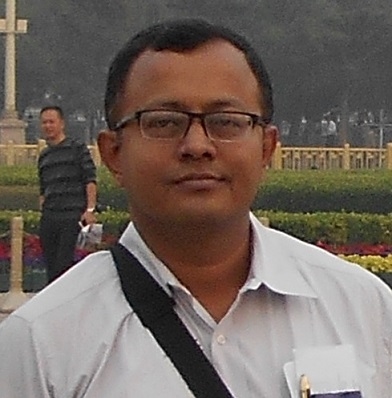
MTech (IITG) PhD (IITG)
Electronics and Communication Engineering
kandarpaks[at]gauhati[dot]ac[dot]in
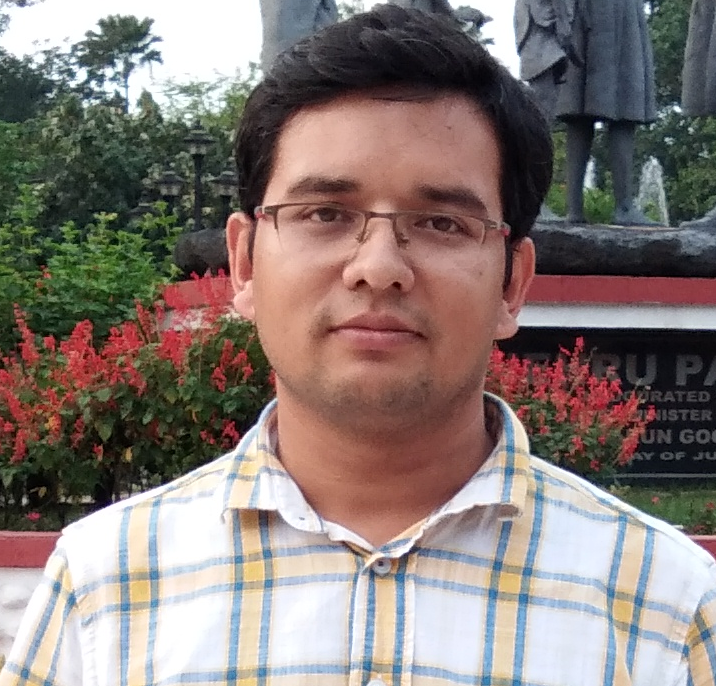
MTech (Tezpur) PhD (IIT Guwahati)
Machine Learning and Computer Vision
anjantalukdar[at]gauhati[dot]ac[dot]in
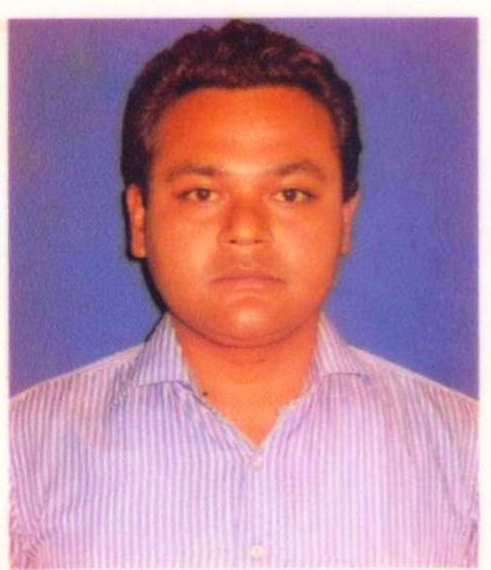
MTech (Tezpur)
Microelectronics and Optimisation of Analog Integrated Circuit
apurba[at]gauhati[dot]ac[dot]in
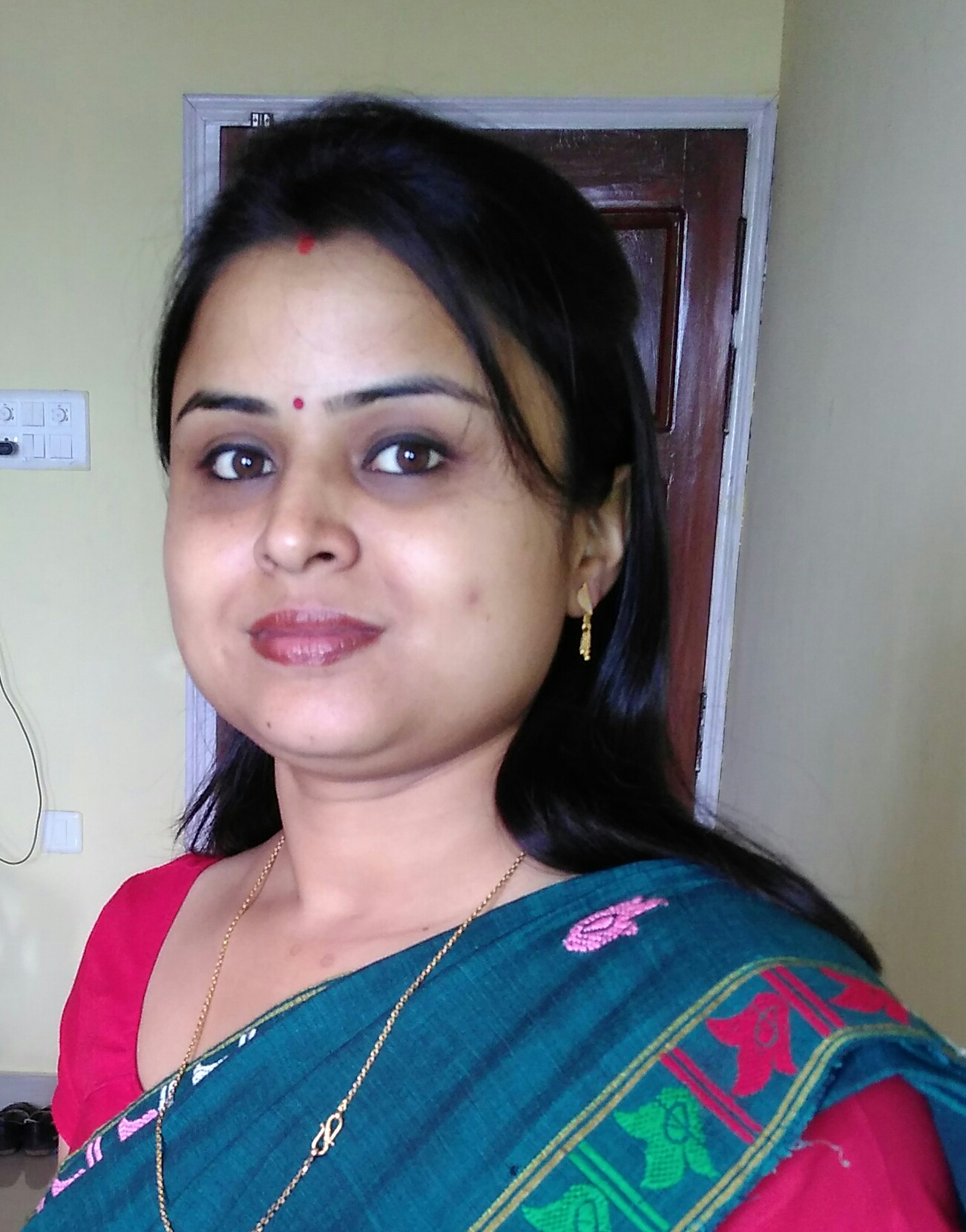
MTech (Gauhati) PhD (Gauhati)
Wireless Communication, Signal Processing
aradhana[dot]misra[at]gauhati[dot]ac[dot]in

MTech (Tezpur) PhD (IIT Guwahati)
Biomedical Signal & Image Processing, Instrumentation, Robotics
jpmedhi[at]gauhati[dot]ac[dot]in
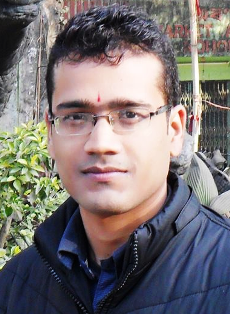
MTech (Tezpur) PhD (Tezpur)
Microprocessor / Microcontroller and Embedded Systems, Electronic Olfaction, Biomedical Instrumentation, IoT
lachit[at]gauhati[dot]ac[dot]in
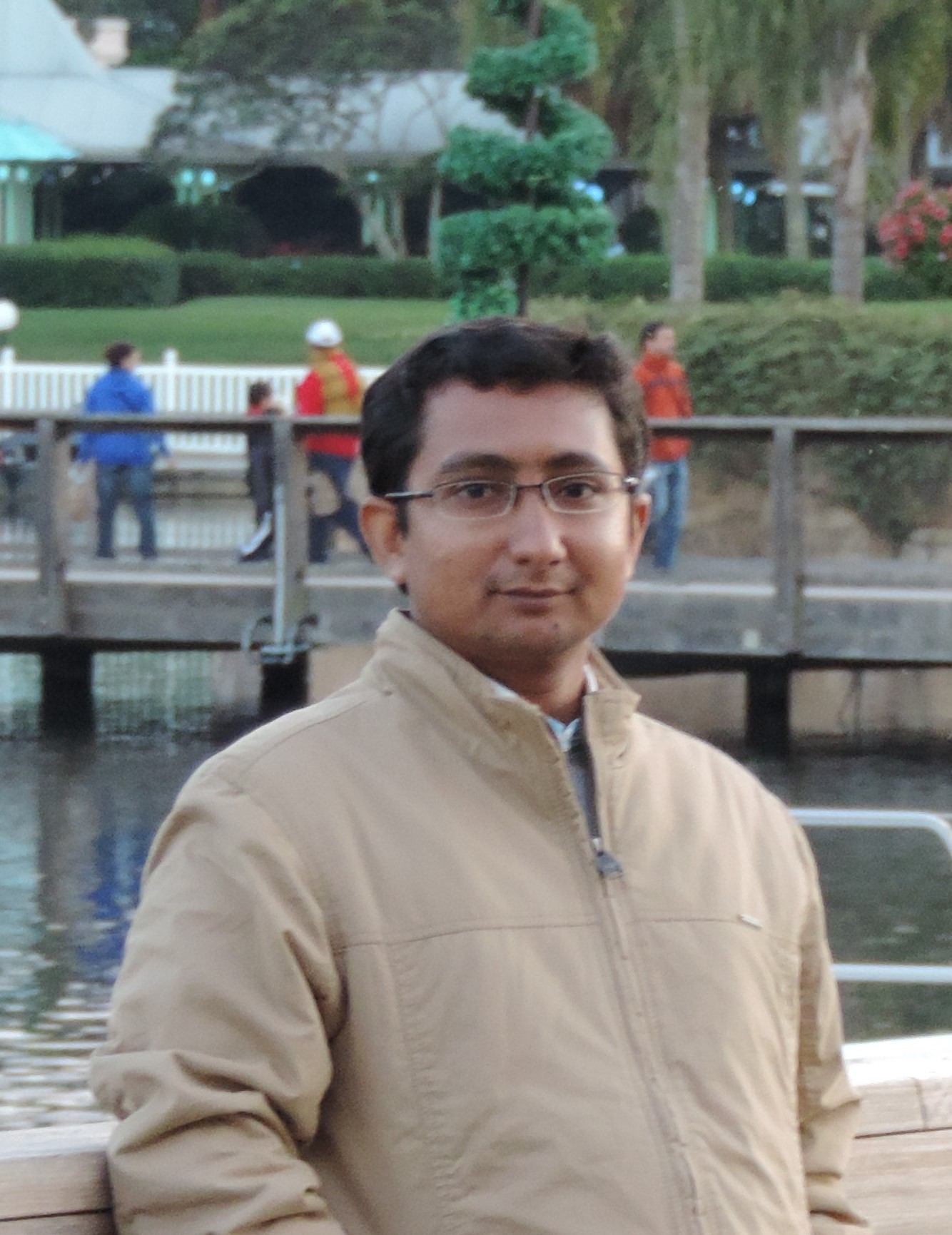
MTech (Tezpur)
High Speed VLSI design for Communication, Device Modelling, Digital Communication, Speech Processing
mpsarma[at]gauhati[dot]ac[dot]in

MSc (Gauhati) MTech (Gauhati)
Real time Signal Processing, Wireless Communication
amitava[dot]dey[at]gauhati[dot]ac[dot]in

MSc (Gauhati) MTech (Gauhati) PhD (Gauhati)
Electronic Design for EAS Applications
subhash73[at]gauhati[dot]ac[dot]in